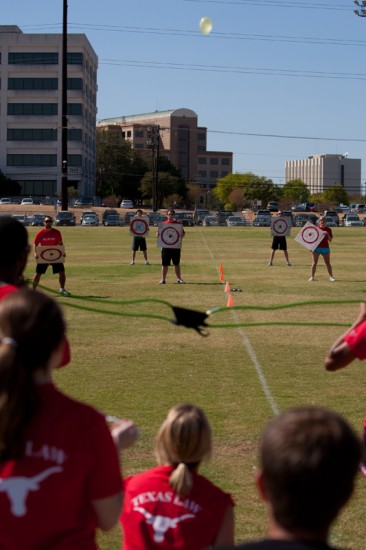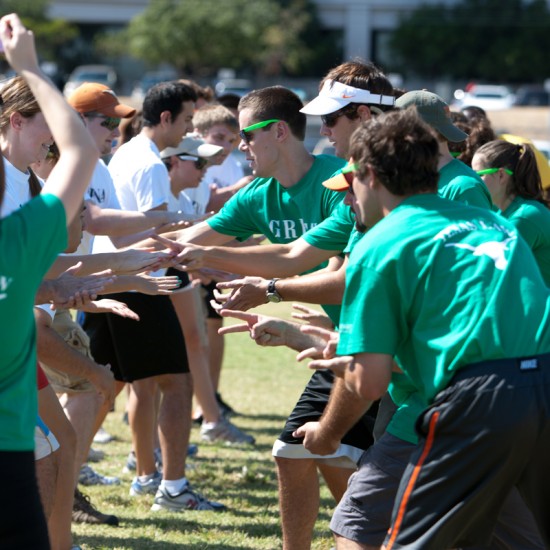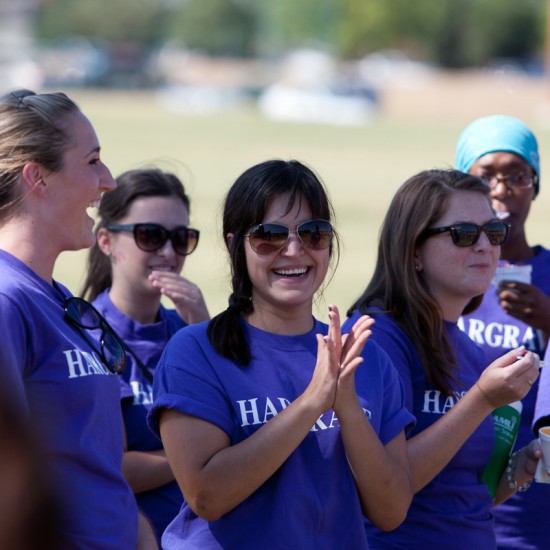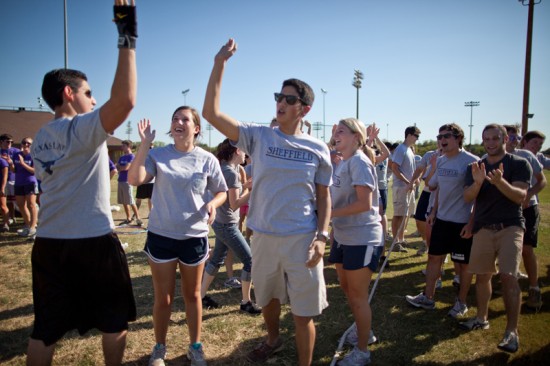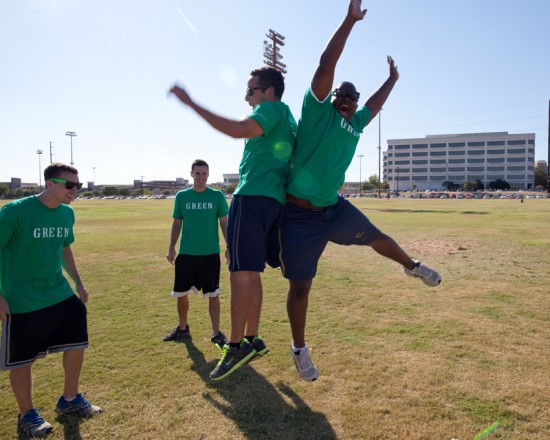Law School alumni who graduated before 2005 may not be aware of it, but their alma mater has developed a unique and innovative Society Program that has been highly successful in helping law students meet and work more closely with faculty, find mentors, and develop relationships and build community with their fellow students. The Society Program was inaugurated in 2004 after the Law School’s Long-Range Planning Commission delivered a report based on a year-long study of the entire institution and concluded that “The size of our student body and our high student-faculty ratio are obstacles to student-faculty interaction. Students want more contact with faculty, and with upper-class students as mentors. . . . We need to create smaller units of academic, intellectual, and social interaction among students and faculty.”
“The Society Program is designed to make us a happier, better place,” is how David Sokolow, director of student life and Society Program advisor puts it. “And I think we are succeeding in that goal.”
So, how does the Society Program work? Each year, the Law School’s entering class numbers approximately four-hundred freshmen. Entering students are placed in one of eight societies, each of which comprises about fifty entering students (and thus about 150 students from all three years, as students maintain their society affiliation throughout their time at the Law School) and is named after an individual who has made a significant impact on the Law School (see below). Each society has a faculty advisor responsible for developing society-wide activities of a social, intellectual, professional, and public-service nature.
Each group of entering students is further divided into two mentor groups of twenty-five students each within their society. The mentors are upper-class law students who counsel and advise students in their groups as well as organize social and intramural athletic activities throughout the year, meeting on a weekly basis for the first six weeks of school. Mentors also arrange get-togethers for before the school year begins so that students will have a chance to meet other members of their group and society before classes begin.
Entering students benefit greatly from the help of mentors, but it also proves to be an important experience for the mentors. “Being a mentor is one of the best decisions I’ve made in law school,” said second-year student and Bradford mentor Nishi Kothari. “I always knew that being a mentor entailed sharing my experiences and giving advice to the new 1Ls, but I didn’t realize how much I would learn in the process. My students are some of the most fascinating people I’ve ever met, and it’s been an honor to be their mentor. Some of the highlights for me this year were: how the Bradford 1Ls rallied together and put up a good fight at Society Games and the small group dinners we’ve had. One of the best things about being a mentor is the satisfaction you get when you can tell that you are making a difference in someone else’s life.”
The Program also has a public-service component to help initiate students into the legal profession’s culture of pro bono and public-service activities. Participation is voluntary, though strongly encouraged, and has included such things as tutoring middle-school students, building homes for Habitat for Humanity, and helping low-income families to claim their earned income tax credit.
Finally, each society has a Community Fellow, a well-known lawyer, educator, or jurist who meets with students in their society informally once a semester, giving students an opportunity to chat with an important figure in the professional field one on one or in a small group. Among recent Community Fellows have been Texas State Senator Rodney Ellis, ’79; U.S. District Court Judge Lee H. Rosenthal; Texas Supreme Court Justice Wallace Jefferson, ’88; and UT President William Powers, former dean of the Law School.
The structure and activities combine to provide and foster social and intellectual interaction among first-year students; between first-, second-, and third-year students; between JD and LLM students; and between students and faculty and alumni and working legal professionals.
“This sort of interaction is lacking on an institutional level at virtually every law school in the country,” Sokolow said. “Our program is, as far as we know, unique.”
Faculty advisors especially seem to enjoy the opportunity to interact with students outside a classroom setting. “I’ve enjoyed being the Green Society’s Faculty Advisor every year since the beginning of the program,” said Guy Wellborn, William C. Liedtke Sr. Professor at the Law School. “I like the opportunities to meet the students in the relaxed settings of Societies events. I still hope that some year Green can bring home the trophy from the Games. This year we finished third, which may be Green’s best. In 2008 one of our events was to watch a presidential debate at Double Dave’s Pizza. An unexpected problem arose for some of us—the Houston Astros were uncharacteristically in the playoffs, and had a game at the same time as the debate. Fortunately there were two TVs, so half of us could watch the debate and the other half got to see the game!”
The spirit of the Society Program comes out most visibly and enthusiastically at the annual Society Games, in which the eight societies compete against each other in everything from tug o’war to rock-paper-scissors to a three-legged race. Allyson Childs, ’95, director of student programs, said the Games provide a great atmosphere for student camaraderie and further the Program’s overall goal of building community at the Law School.
“We want the students to feel at home at the Law School,” she said. “And that drives everything we do—from having the mentors support and encourage the first-year students to setting up events like small group lunches with the Faculty Advisors to working in groups on service projects around the Austin community. The Community Fellows initiative has been very well received by the students because they have the opportunity to hear advice from highly distinguished attorneys and are able to ask questions they may not be comfortable asking in other settings.”
Community Fellow Judge Rosenthal said she has also enjoyed the atmosphere fostered in the Society Program. “For a judge, it is great opportunity to be with students in an informal and relaxed setting,” she said. “We’re not there to interview or be interviewed and there are no grades anywhere in sight. It’s only about the conversation. That makes it a unique opportunity that, for me, is just fun.”
Student surveys suggest that the Society Program is succeeding in its goals. Childs said recent student surveys about the Program have been overwhelmingly positive: “In our most recent survey, 328 out of 364 responding first-year students indicated that the Society Program has had a positive impact on their law school experience,” she said. “Three hundred and forty first-year students rated their mentor’s performance as excellent or very good. The feedback we have received suggests that people believe they benefit from the Program.”
Since its beginning, the Society Program has been generously sponsored by Fulbright and Jaworski, which contributes $50,000 each year to sponsor Society Program events and activities, including the colorful T-shirts each Society member wears at the annual games.
“Fulbright’s help has been exceptional in creating this unique program,” Sokolow said. “It’s really helped make the Society Program work.”
Sokolow stressed that the benefits of the Society Program are not simply limited to the recent students lucky enough to have participated in it. “Because it involves current students with professors, upper-class members, and working lawyers in the community, it provides a great base for future networking, as well as a more positive feeling about the UT Law experience as a whole,” he said. “Which translates into a better environment for recruiting the great students and lawyers of the future, thus improving the Law School’s already stellar reputation in the wider world.”
Judge Edward C. Prado, ’72, another Community Fellow and a federal judge on the United States Court of Appeals for the Fifth Circuit, concurs. “The Society Program is fantastic,” he said. “I wish that when I was in law school we would have had a practicing attorney to talk to and give us a better sense of what we could expect from both law school and after graduation. As the Community Fellow for the Sheffield Society, I try to give the students some insight into the real world of practicing law—both its highs and its lows. I also encourage them to take advantage of the many programs the Law School has to offer, from moot court to the legal writing program to working with a professor. I do so not only because I think that it will enhance their experience at the Law School, but also because these programs are exceedingly helpful in securing better job opportunities. I am always struck by how eager the students are to engage with alumni and the larger legal community. I too gain a lot from participating. I am always excited to get to hear from the students about their pre-law school experiences as well as their long-term goals. Had the Program existed when I was at the Law School, I’m confident I would have been even better prepared to enter the legal profession. It’s truly a special program.”
The Law School’s Eight Societies
Gloria K. Bradford Society, honoring the first African-American female to graduate from UT Law (1954).
Faculty Advisor: Bob Bone
Community Fellow: Judge Lee H. Rosenthal
Carlos Cadena Society, honoring a summa cum laude graduate of UT Law, a respected judge, and a civil rights crusader.
Faculty Advisor: Tracy McCormack
Community Fellow: Judge Nancy F. Atlas
Leon Green Society, a 1915 graduate who was one of the Twentieth Century’s most important torts scholars and a leading figure in American Legal Realism.
Faculty Advisor: Guy Wellborn
Community Fellow: UT President Bill Powers
Helen Hargrave Society, honoring UT Law’s longtime librarian and the School’s first female faculty member.
Faculty Advisor: Stefanie Lindquist
Community Fellow: Senator Rodney Ellis, ’79
Gus Hodges Society, honoring a highly popular professor who used his experience to earn the respect of the legislature, bench, and bar.
Faculty Advisor: Patrick Woolley
Community Fellow: Harry Reasoner, ’62
Charles McCormick Society, honoring a former dean who was nationally known for his contributions in federal procedure, damages, and evidence.
Faculty Advisor: Sean Petrie
Community Fellow: Jack Balagia, ’76
Alice Sheffield Society, honoring the successful Gulf Oil attorney who was one of UT Law’s first female graduates (1918).
Faculty Advisor: Michael Sturley
Community Fellow: Judge Edward C. Prado, ’72
John Sutton Society, honoring a longtime professor of evidence and professional responsibility and former dean known for his collegiality.
Faculty Advisor: Alex Albright
Community Fellow: Texas Supreme Court Chief Justice Wallace Jefferson, ’88
Related link
—Julien N. Devereux

